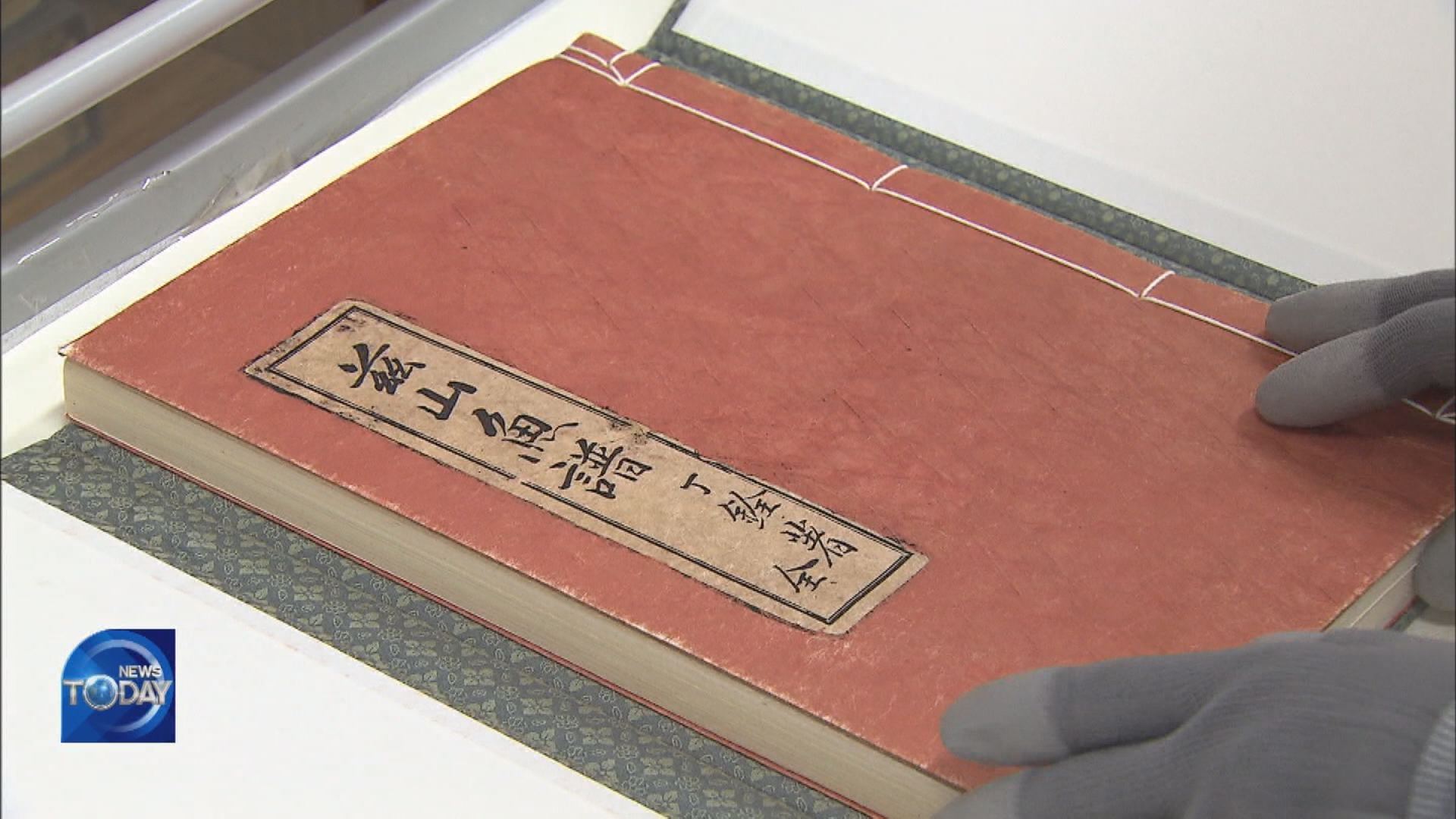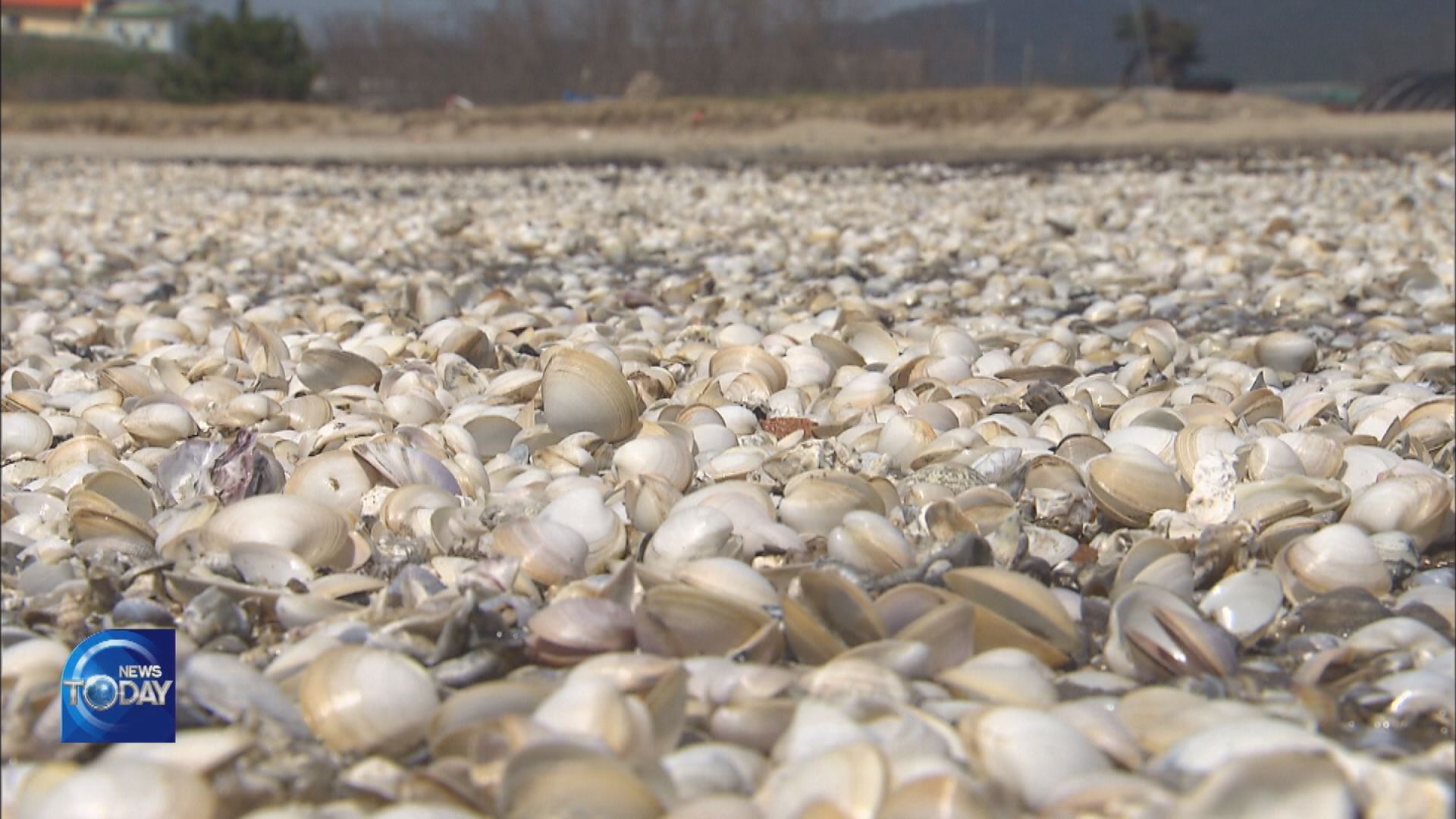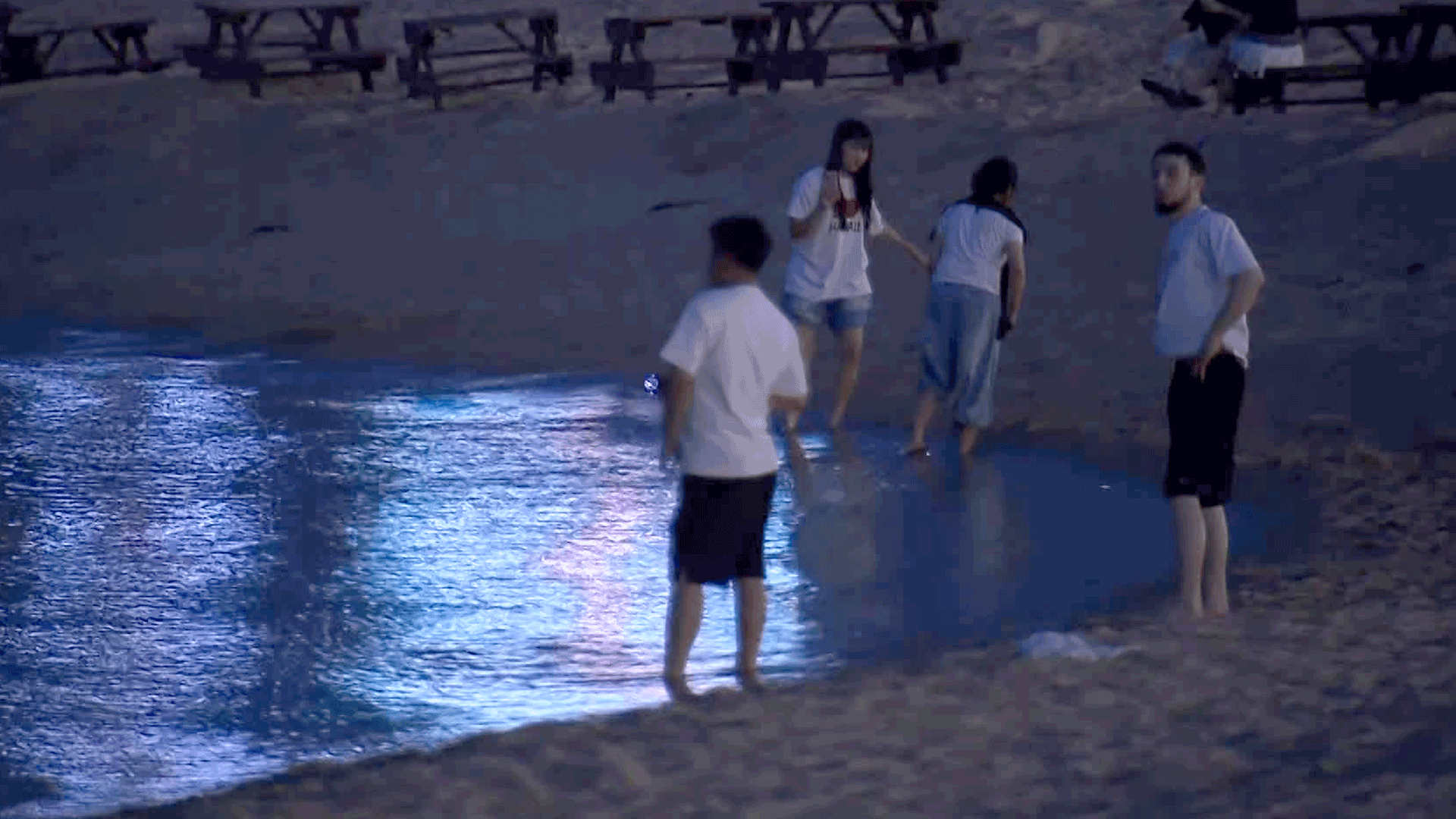“THE BOOK OF FISH” FILM GARNERS ATTENTION
입력 2021.04.06 (15:22)
수정 2021.04.06 (16:47)
읽어주기 기능은 크롬기반의
브라우저에서만 사용하실 수 있습니다.
[Anchor Lead]
"The Book of Fish," a movie about Joseon scholar Jeong Yak-jeon, is receiving rave reviews. It has sparked interest in Silhak, or practical learning, which was abreast of the times.
[Pkg]
A silhak scholar becomes mesmerized with marine creatures after being exiled to Heuksando Island.
[Soundbite] Jeong Yak-jeon(Movie ‘The Book of Fish’) : "I want to now begin learning about fish."
He learns about fish from a young local fisherman, whom he, in return, teaches how to write. The fascinating story of the two men begins with "The Book of Fish" written by the late-Joseon Silhak scholar Jeong Yak-jeon. In 1814, Jeong Yak-jeon documented the names, habitats, shapes and living habits of 155 marine species. The book's epilogue records that he had received help from a man named Changdae.
[Soundbite] Lee Joon-ik(Director of ‘The Book of Fish’) : "Changdae's name appears in the book. It also mentions his remarks nine times."
Jeong Yak-jeon and his brother Jeong Yak-yong were renowned scholars who were abreast of their times. They shared the same beliefs, but their personalities were quite different. Jeong Yak-yong wrote more than 500 books while preparing to return to normal life after exile. Jeong Yak-jeon reached out to grassroots struggling to make ends meet.
[Soundbite] Park Seok-moo(Dasan Research Center) : "Jeong Yak-jeon was a close friend of the ordinary people. He even forgot about his social status. He didn't balk at doing things that were normally done by the lower class."
The spirit of "The Book of Fish" serves as the foundation of research into marine life in Korea. It continues to inspire scientists to this day.
[Soundbite] Hwang Seon-do(Nat’l Marine Biodiversity Institute of Korea) : "Classifying fish by shape is not easy even for today's scientists. The fact that he observed and classified them back then is amazing."
The spirit of Silhak scholars, who believed in helping the people at the practical level to relieve their plight... It serves as a guiding light even for modern-day science, culture and the arts.
"The Book of Fish," a movie about Joseon scholar Jeong Yak-jeon, is receiving rave reviews. It has sparked interest in Silhak, or practical learning, which was abreast of the times.
[Pkg]
A silhak scholar becomes mesmerized with marine creatures after being exiled to Heuksando Island.
[Soundbite] Jeong Yak-jeon(Movie ‘The Book of Fish’) : "I want to now begin learning about fish."
He learns about fish from a young local fisherman, whom he, in return, teaches how to write. The fascinating story of the two men begins with "The Book of Fish" written by the late-Joseon Silhak scholar Jeong Yak-jeon. In 1814, Jeong Yak-jeon documented the names, habitats, shapes and living habits of 155 marine species. The book's epilogue records that he had received help from a man named Changdae.
[Soundbite] Lee Joon-ik(Director of ‘The Book of Fish’) : "Changdae's name appears in the book. It also mentions his remarks nine times."
Jeong Yak-jeon and his brother Jeong Yak-yong were renowned scholars who were abreast of their times. They shared the same beliefs, but their personalities were quite different. Jeong Yak-yong wrote more than 500 books while preparing to return to normal life after exile. Jeong Yak-jeon reached out to grassroots struggling to make ends meet.
[Soundbite] Park Seok-moo(Dasan Research Center) : "Jeong Yak-jeon was a close friend of the ordinary people. He even forgot about his social status. He didn't balk at doing things that were normally done by the lower class."
The spirit of "The Book of Fish" serves as the foundation of research into marine life in Korea. It continues to inspire scientists to this day.
[Soundbite] Hwang Seon-do(Nat’l Marine Biodiversity Institute of Korea) : "Classifying fish by shape is not easy even for today's scientists. The fact that he observed and classified them back then is amazing."
The spirit of Silhak scholars, who believed in helping the people at the practical level to relieve their plight... It serves as a guiding light even for modern-day science, culture and the arts.
■ 제보하기
▷ 카카오톡 : 'KBS제보' 검색, 채널 추가
▷ 전화 : 02-781-1234, 4444
▷ 이메일 : kbs1234@kbs.co.kr
▷ 유튜브, 네이버, 카카오에서도 KBS뉴스를 구독해주세요!
- “THE BOOK OF FISH” FILM GARNERS ATTENTION
-
- 입력 2021-04-06 15:22:10
- 수정2021-04-06 16:47:08

[Anchor Lead]
"The Book of Fish," a movie about Joseon scholar Jeong Yak-jeon, is receiving rave reviews. It has sparked interest in Silhak, or practical learning, which was abreast of the times.
[Pkg]
A silhak scholar becomes mesmerized with marine creatures after being exiled to Heuksando Island.
[Soundbite] Jeong Yak-jeon(Movie ‘The Book of Fish’) : "I want to now begin learning about fish."
He learns about fish from a young local fisherman, whom he, in return, teaches how to write. The fascinating story of the two men begins with "The Book of Fish" written by the late-Joseon Silhak scholar Jeong Yak-jeon. In 1814, Jeong Yak-jeon documented the names, habitats, shapes and living habits of 155 marine species. The book's epilogue records that he had received help from a man named Changdae.
[Soundbite] Lee Joon-ik(Director of ‘The Book of Fish’) : "Changdae's name appears in the book. It also mentions his remarks nine times."
Jeong Yak-jeon and his brother Jeong Yak-yong were renowned scholars who were abreast of their times. They shared the same beliefs, but their personalities were quite different. Jeong Yak-yong wrote more than 500 books while preparing to return to normal life after exile. Jeong Yak-jeon reached out to grassroots struggling to make ends meet.
[Soundbite] Park Seok-moo(Dasan Research Center) : "Jeong Yak-jeon was a close friend of the ordinary people. He even forgot about his social status. He didn't balk at doing things that were normally done by the lower class."
The spirit of "The Book of Fish" serves as the foundation of research into marine life in Korea. It continues to inspire scientists to this day.
[Soundbite] Hwang Seon-do(Nat’l Marine Biodiversity Institute of Korea) : "Classifying fish by shape is not easy even for today's scientists. The fact that he observed and classified them back then is amazing."
The spirit of Silhak scholars, who believed in helping the people at the practical level to relieve their plight... It serves as a guiding light even for modern-day science, culture and the arts.
"The Book of Fish," a movie about Joseon scholar Jeong Yak-jeon, is receiving rave reviews. It has sparked interest in Silhak, or practical learning, which was abreast of the times.
[Pkg]
A silhak scholar becomes mesmerized with marine creatures after being exiled to Heuksando Island.
[Soundbite] Jeong Yak-jeon(Movie ‘The Book of Fish’) : "I want to now begin learning about fish."
He learns about fish from a young local fisherman, whom he, in return, teaches how to write. The fascinating story of the two men begins with "The Book of Fish" written by the late-Joseon Silhak scholar Jeong Yak-jeon. In 1814, Jeong Yak-jeon documented the names, habitats, shapes and living habits of 155 marine species. The book's epilogue records that he had received help from a man named Changdae.
[Soundbite] Lee Joon-ik(Director of ‘The Book of Fish’) : "Changdae's name appears in the book. It also mentions his remarks nine times."
Jeong Yak-jeon and his brother Jeong Yak-yong were renowned scholars who were abreast of their times. They shared the same beliefs, but their personalities were quite different. Jeong Yak-yong wrote more than 500 books while preparing to return to normal life after exile. Jeong Yak-jeon reached out to grassroots struggling to make ends meet.
[Soundbite] Park Seok-moo(Dasan Research Center) : "Jeong Yak-jeon was a close friend of the ordinary people. He even forgot about his social status. He didn't balk at doing things that were normally done by the lower class."
The spirit of "The Book of Fish" serves as the foundation of research into marine life in Korea. It continues to inspire scientists to this day.
[Soundbite] Hwang Seon-do(Nat’l Marine Biodiversity Institute of Korea) : "Classifying fish by shape is not easy even for today's scientists. The fact that he observed and classified them back then is amazing."
The spirit of Silhak scholars, who believed in helping the people at the practical level to relieve their plight... It serves as a guiding light even for modern-day science, culture and the arts.
이 기사가 좋으셨다면
-
좋아요
0
-
응원해요
0
-
후속 원해요
0

















이 기사에 대한 의견을 남겨주세요.